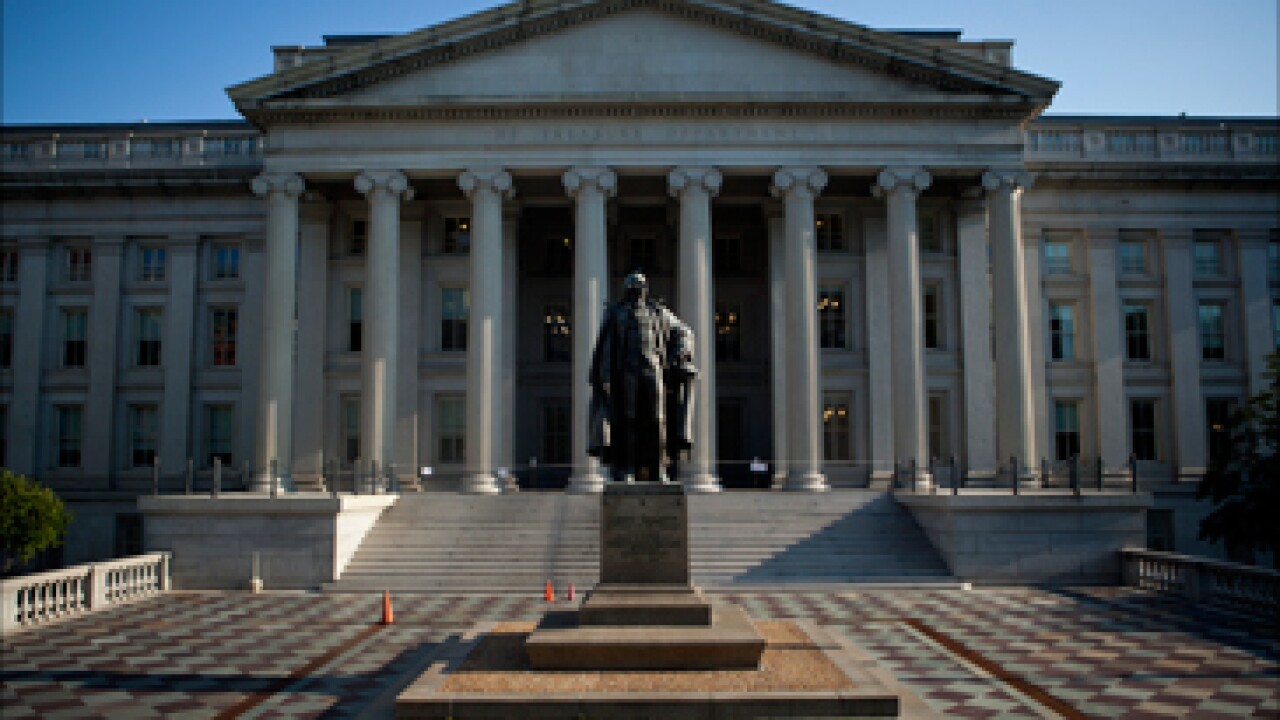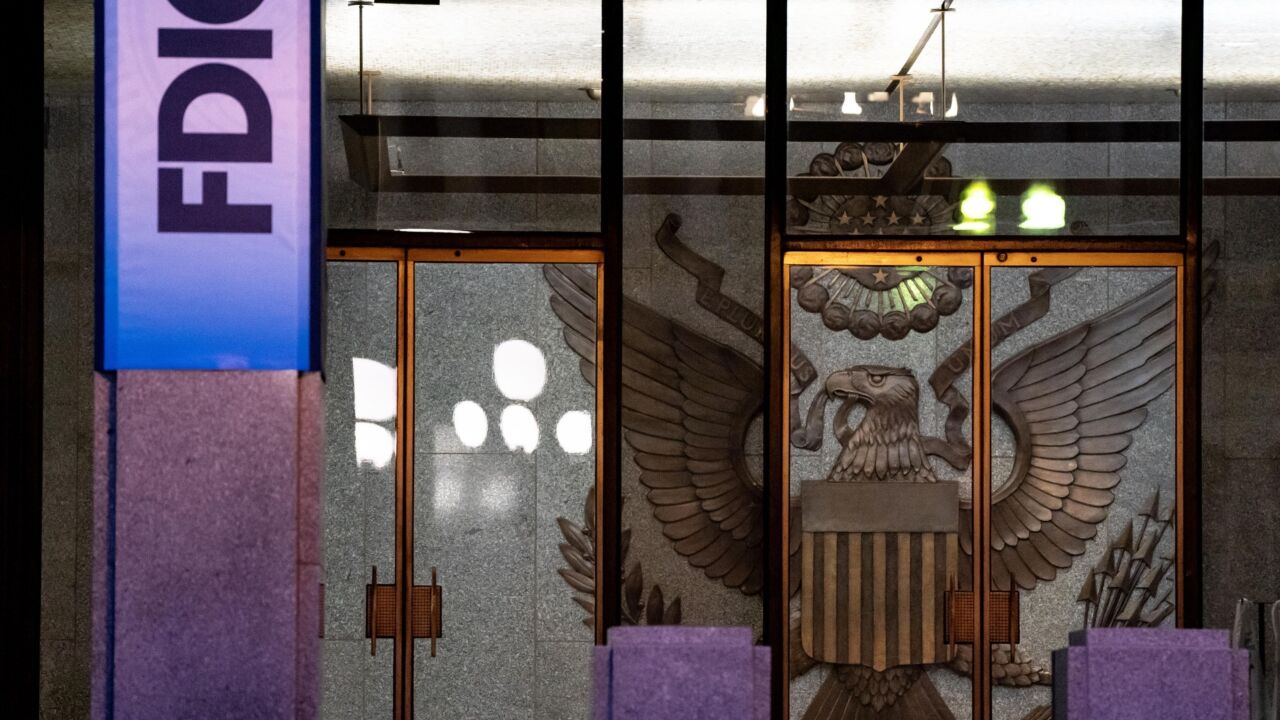Politics and policy
Politics and policy
-
The Treasury Department told the OMB that all 11 programs in the CDFI Fund are statutorily mandated. The White House said "no final decisions have been made" about the programs.
March 28 -
The Federal Reserve, the Federal Deposit Insurance Corp. and the Office of the Comptroller of the Currency say they will move to rescind a 2023 reform to the Community Reinvestment Act, citing litigation concerns about the rule.
March 28 -
The SEC had sued the cryptocurrency exchange for allegedly operating as an unregistered securities exchange, broker, dealer and clearing agency. The case was dropped with prejudice.
March 28 -
The acting chairman of the agency had laid out an ambitious agenda for revamping regulations and encouraging innovation, but there are dangers in trying to do too much, too soon.
March 28 -
The challenge comes on the heels of decisions from judges in Maryland and California ruling in favor of laid off probationary employees.
March 27 -
Democratic lawmakers signed an amicus brief with the D.C. District Court supporting a preliminary injunction to stop mass firings by the Trump administration at the Consumer Financial Protection Bureau.
March 27 -
A new Office of External Relations and Strategic Partnerships will continue the work of helping banks develop affordable credit for consumers lacking a credit score using untraditional methods of determining creditworthiness, the agency's acting head said.
March 27 -
The Senate Banking Committee considered the nomination of Paul Atkins to lead the Securities and Exchange Commission, whose track record on deregulation in the lead up to the 2008 financial crisis was questioned by Democratic lawmakers. Lawmakers also considered the nomination of Jonathan Gould to lead the Office of the Comptroller of the Currency and Luke Pettit for a key bank regulatory role at Treasury.
March 27 -
The veto aligns with President Trump's executive order on AI, which focuses on innovation and leadership rather than consumer protection.
March 27 -
The Senate voted 52-48 to overturn the Consumer Financial Protection Bureau's rule that would cap overdraft fees at many banks at $5.
March 27 -
The Senate Banking Committee will consider the nominations of Jonathan Gould to lead to Office of the Comptroller of the Currency, Paul Atkins to lead the Securities and Exchange Commission and Luke Pettit as Assistant Secretary of the Treasury Thursday morning.
March 27 -
In a paper, former central bank researchers make the case that the Federal Reserve could better support the Treasury market from disruptions in the cash-futures basis trade by hedging its asset purchases.
March 26 -
The Consumer Financial Protection Bureau asked a federal judge to vacate and set aside a settlement against a Chicago mortgage lender, accusing the CFPB of misconduct in a case brought under former Director Kathy Kraninger, a Trump appointee.
March 26 -
The North Carolina House of Representatives this week passed a measure that would allow credit unions to expand into geographic areas with few, if any, bank branches. Banks say such a change could open the door for credit unions to expand far beyond their limited missions.
March 26 -
The Federal Reserve, Federal Deposit Insurance Corp. and Office of the Comptroller of the Currency took a measured approach to developing the international capital standards, according to a Government Accountability Office report.
March 26 -
Rep. Andy Barr, R-Ky., who chairs the House Financial Services Subcommittee on Financial Institutions, called the CFPB under the Biden administration and former Director Rohit Chopra an "Orwellian predator."
March 26 -
The Treasury will phase out the use of paper checks for most government payments in about six months. The Trump administration says the move will improve efficiency and reduce the cost of payment processing.
March 26 -
Current leverage-based capital requirements are outdated, counterproductive and urgently need reform to better serve U.S. taxpayers, capital markets, consumers, businesses and the economy.
March 26 -
The largest U.S. banks are facing shareholder votes on a number of politically charged issues — some backed by conservative groups and others championed by organizations with a more progressive bent.
March 25 -
Wall Street veteran Frank Bisignano pledged at a Senate Finance Committee hearing that he doesn't plan to privatize Social Security.
March 25






















